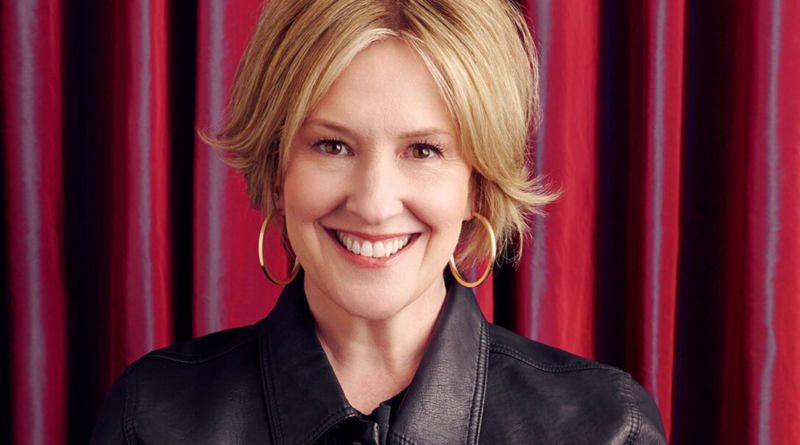Exclusive: Vulnerability expert Brené Brown says if you’re a leader who doesn’t understand ‘people’s fears and feelings, you will not be leading in the future’
When Brené Brown delivered one of her first leadership trainings to a group of Air Force squadron commanders in 2018, she warned their brigadier general that they would be discussing fears and feelings.
Brown, a New York Times bestselling author on shame and vulnerability and a research professor at the University of Houston, didn’t know how the topic would go over considering that most people are taught not to admit to their fear. His response, however, surprised her.
“He said, ‘When your life’s on the line, you have to always deal with fears and feelings. We don’t let you lead people here unless you can have a deep affection for them,’” Brown recalls.
“That’s what it means to show up and have courage as a leader,” Brown tells Fortune in an exclusive interview. “If you are a leader and you do not have the capacity to understand and discuss people’s fears and feelings, you will not be leading in the future.”
Today’s workplace is in turmoil—plagued by high rates of burnout and loneliness, while also in the throes of an AI transformation. Brown says it’s more relevant than ever for leaders, regardless of industry, to model this mindset.
“I know we would all love to believe that we are cognitive beings who on occasion have a pesky emotion, but we are actually emotional beings who on occasion think,” she says.
Following the success of her 2010 TED talk, “The Power of Vulnerability,” which has over 65 million views, Brown developed a leadership curriculum for organizations. Her training in courage-building has reached 120,000 people.
To scale her curriculum, Brown announced a partnership with BetterUp, a virtual coaching platform comprised of over 4,000 coaches across 70 countries. The company partners with hundreds of organizations and offers programming around leadership and managerial effectiveness. This week, BetterUp announced the launch of the Daring Leadership Institute, naming Brown as the Executive Chair and member of the company’s science board. Brown’s courage-building curriculum will be available to BetterUp members, customers, and coaches through the institute.
Alexi Robichaux, cofounder, and CEO of BetterUp, says there’s no better time to scale Brown’s content for the leaders of the future.
“Gen AI is washing out the basic Peter Drucker management skills in many ways, and the ones that remain are these Dare to Lead leadership skills. What makes modern management and middle management so hard today is that the share of emotional labor is increasing, but the enablement and the skills around that are not,” he tells Fortune. “Emotional labor is like the dirty secret of management. Things like resilience matter more than ever. Things like cognitive agility matter more than ever. Things like self-compassion matter more than ever.”
What does it look like to lead with resilience and courage?
After speaking with countless Fortune 500 executives, Brown says that irrespective of industry, leaders want to live more courageously but don’t know how.
“We know that courage is teachable, observable, and measurable, but we also know that for the change to be lasting, we need to go deeper,” Brown says. “The most transformational leaders out there are very clear and can very quickly identify their core values.”
In her research, Brown found that business leaders often identified their core values but were less able to articulate how to operationalize them.
“We all know what it feels like to be in our values and what it feels like to be outside of them. There’s only so much Bridgerton you can watch to numb that fear, to numb that feeling of like, ‘How did I show up like that today?’” she says.
Brown, whose values are courage and faith, says she can operationalize them by one action reminder: Don’t talk about people, but talk to people.
“We share our values with our team. We share what it looks like when we’re in them, and we share what it looks like when we’re out of them,” she says. “It’s a very normal part of our culture, especially my direct reports, to come up to me and say, ‘Hey, that was tough. I really appreciate how you lived your values there.”
People must also lead with curiosity—admitting what they don’t know and continuing to learn, Brown says. The onus rests with the leaders with the most power to shift culture and expectations to prioritize more than the bottom line. “It takes leaders willing to reward and build accountable cultures and not tolerate people who really make armor required,” she says. “Have you built a culture where people can take off their armor? If not, let’s start there.”
Brown tells Fortune she isn’t asking people to become counselors or to go to work tomorrow and immediately share the deeper parts of themselves.
“You don’t have to be a therapist to everyone you lead, but you have to care about who they are as humans,” she says. “We’re not asking individuals to be vulnerable at work. We’re asking leaders to build cultures where armor is not rewarded or required to survive work. There’s a big difference there.”
For more on workplace wellness:



